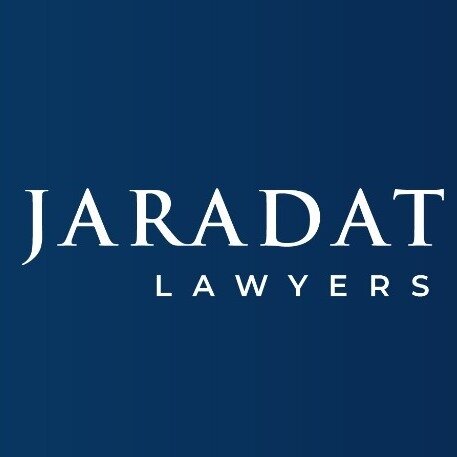Best Administrative Lawyers Near You
Share your needs with us, get contacted by law firms.
Free. Takes 2 min.
Or refine your search by selecting a city:
List of the best lawyers
Administrative Legal Articles
Browse our 4 legal articles about Administrative written by expert lawyers.
- Waqf Judgment by the Supreme Court of India: Explained in Simple Words
- On 15 September 2025, the Supreme Court of India delivered an important ruling on the Waqf (Amendment) Act, 2025. This law introduced major changes to how Waqf properties (religious endowments made by Muslims for charity or religious purposes) are governed in India.Several petitions had been filed in the Court, challenging... Read more →
- What Are the Steps to Change My Name Legally in Thailand?
- Changing one’s name is a common occurrence in Thailand, whether due to marriage, divorce, religious reasons, personal preferences, or cultural beliefs. The Thai government allows for legal name changes but requires a specific process. This guide will provide step-by-step instructions on legally changing your name in Thailand, covering both the... Read more →
- Dispute Resolution for B2B Transactions in Thailand: A Detailed Overview
- Dispute Resolution for B2B Transactions in Thailand: A Detailed OverviewDispute resolution is a critical component of business-to-business interactions. Thailand's legal structure allows for a variety of conflict resolution options, including litigation, arbitration, and mediation. Understanding these procedures is critical for attorneys and law firms advising businesses on commercial activity. This... Read more →
About Administrative Law
Administrative law is a branch of law that governs the activities of administrative agencies of government. It involves the regulations and legal principles governing the administration and regulation of government agencies, both federal and state. Administrative agencies perform a wide array of functions, from rule-making, enforcement of regulations, adjudication, and offering redress to the affected parties. This area of law ensures that government actions comply with the law, maintaining transparency and accountability.
Why You May Need a Lawyer
There are several situations where individuals or businesses might require legal assistance in the field of administrative law:
- License and Permit Issues: If you're applying for, renewing, or appealing a decision about a license or permit, an administrative lawyer can help navigate the complexities.
- Compliance with Regulations: Businesses often need guidance to ensure compliance with local, state, and federal regulations.
- Administrative Hearings: Legal representation might be necessary for matters like workers' compensation appeals or public assistance benefit hearings.
- Disciplinary Actions: Professionals facing disciplinary actions by regulatory boards might need legal defense.
- Zoning Disputes: Lawyers can assist in matters involving zoning laws and land use.
- Challenging Agency Decisions: If you want to challenge or appeal a decision made by a government agency, legal expertise is crucial.
Local Laws Overview
The intricacies of administrative law can vary significantly depending on local jurisdiction. Key aspects typically involve:
- Administrative Procedure Acts: Many regions have adopted specific procedure acts that dictate how agencies must operate, ensuring fair processes and outlining the rights of individuals.
- Public Participation: Laws may require public participation in the rule-making process, ensuring community engagement in decisions that affect local areas.
- Open Records and Meetings Acts: Transparency is often emphasized through laws that mandate public access to government records and meetings.
- Licensing and Regulatory Boards: Local laws might establish various boards to oversee specific professions and industries, impacting compliance and enforcement activities.
Frequently Asked Questions
What is the role of an administrative law judge?
An administrative law judge (ALJ) conducts hearings and makes rulings on disputes involving administrative law. They function independently of the agency involved in the case, providing a neutral decision-making process.
Can I represent myself in an administrative proceeding?
Yes, individuals can often represent themselves; however, due to the complexity of administrative law, having a lawyer can significantly enhance your chances of a favorable outcome.
How do I appeal an agency decision?
You can typically appeal agency decisions through an internal review process, a higher administrative authority, or in some cases, through judicial review in court. Each agency has specific regulations governing appeals.
What should I expect during an administrative hearing?
Administrative hearings are less formal than court trials but involve presenting evidence and arguments. You'll have the opportunity to present your case, and the agency will do the same.
How long does an administrative appeal process take?
The duration varies depending on the agency and complexity of the case. Some appeals may resolve within weeks, while others may take months or longer.
Are administrative decisions public record?
Yes, many administrative decisions are part of the public record unless otherwise specified by confidentiality laws. This ensures transparency in government proceedings.
Do I have to comply with an agency's rules even if I disagree?
Generally, you must comply with the agency’s rules while you pursue legal remedies such as appeals. Ignoring compliance can lead to penalties or further legal action.
What types of penalties can administrative agencies impose?
Penalties can include fines, license suspensions, revocations, or mandatory corrective actions, depending on the violation and applicable laws.
How are administrative rules different from laws passed by legislature?
Administrative rules are created by agencies to implement and enforce laws passed by the legislature, providing detailed regulations that apply to specific situations.
What happens if I miss an administrative deadline?
Missing a deadline can jeopardize your case, leading to a default decision against you. It's crucial to adhere to all timeline requirements and seek extensions if necessary.
Additional Resources
For those seeking guidance in administrative law, several resources can provide assistance:
- Local Bar Association: Offers resources and referrals to administrative law attorneys.
- State Administrative Procedure Act Guide: Provides details on procedures applicable in your jurisdiction.
- Government Agency Websites: Most agencies have online resources detailing their rules, processes, and contact information.
- Legal Aid Organizations: Offer free or low-cost legal assistance to those who qualify based on income or specific needs.
- Public Libraries: Access to legal texts and databases that may provide further understanding of administrative law.
Next Steps
If you need legal assistance in administrative matters, consider taking the following steps:
- Identify the specific area of administrative law related to your issue.
- Consult with a lawyer specializing in administrative law to evaluate your situation and options.
- Prepare all relevant documents, correspondence, and records for your case.
- Adhere to any timelines or deadlines provided by the agency or legal processes.
- Consider whether you may qualify for assistance from local legal aid organizations if cost is a concern.
Lawzana helps you find the best lawyers and law firms through a curated and pre-screened list of qualified legal professionals. Our platform offers rankings and detailed profiles of attorneys and law firms, allowing you to compare based on practice areas, including Administrative, experience, and client feedback.
Each profile includes a description of the firm's areas of practice, client reviews, team members and partners, year of establishment, spoken languages, office locations, contact information, social media presence, and any published articles or resources. Most firms on our platform speak English and are experienced in both local and international legal matters.
Get a quote from top-rated law firms — quickly, securely, and without unnecessary hassle.
Disclaimer:
The information provided on this page is for general informational purposes only and does not constitute legal advice. While we strive to ensure the accuracy and relevance of the content, legal information may change over time, and interpretations of the law can vary. You should always consult with a qualified legal professional for advice specific to your situation.
We disclaim all liability for actions taken or not taken based on the content of this page. If you believe any information is incorrect or outdated, please contact us, and we will review and update it where appropriate.
Browse administrative law firms by country
Refine your search by selecting a country.

















